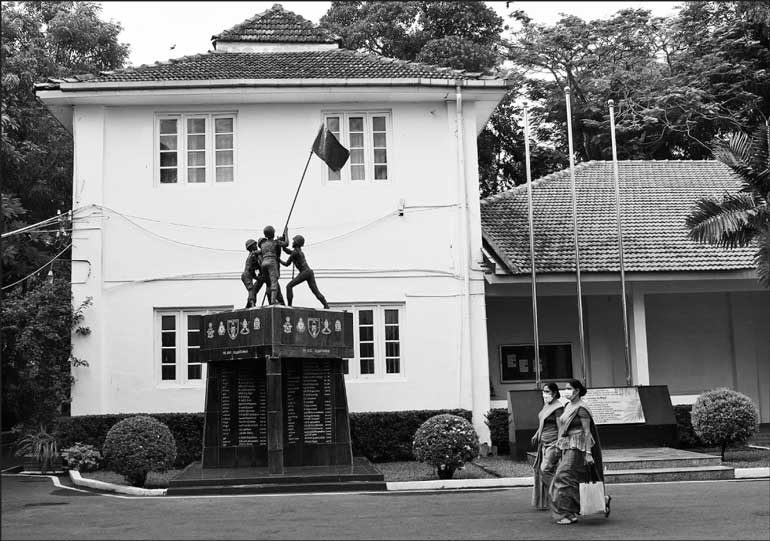Monday Feb 16, 2026
Monday Feb 16, 2026
Saturday, 20 November 2021 00:00 - - {{hitsCtrl.values.hits}}

The Government needs to purchase low-cost test kits and make them available to schools immediately if we are to keep the schools open – Pic by Shehan Gunasekara
 Researchers at IPS published a comprehensive Op-Ed titled ‘Reopening schools in new normal: Key focus areas for Sri Lanka’. Unfortunately, it misses the key point that the Government needs to purchase low-cost test kits and make them available to schools immediately if we are to keep the schools open.
Researchers at IPS published a comprehensive Op-Ed titled ‘Reopening schools in new normal: Key focus areas for Sri Lanka’. Unfortunately, it misses the key point that the Government needs to purchase low-cost test kits and make them available to schools immediately if we are to keep the schools open.
In a context where the Government seems to be looking at closing schools once again in a typical knee-jerk reaction, we wish to reiterate the recommendations made by the Education Forum Sri Lanka in a press release early this month.
Perils of keeping schools closed are now universally acknowledged. In fact, the Worldwide Commission to Educate All Kids (post-pandemic) is calling for an international treaty that would be binding on countries to not close schools except during extreme natural disasters or war.
Countries around the world have reopened schools after 20 months but the challenge of keeping them open remains. After evaluating the strategies adopted by countries across the world, we propose the following set of actions for the Government of Sri Lanka.
1. To minimise infections:
Many countries like India, Singapore, the UK, Israel and Canada are routinely using self-test antigen kits. Usually, these are given by the school, and stocks are replenished as and when they finish. An antigen test kit can be bought at drug stores in Singapore for about two SGD (Rs. 300), and in India, they are even cheaper.
Admittedly antigen tests show varying levels of sensitivity, but combined with other observations, self-test kits provide a strong safeguard against the spread of infections.
2.To let children continue learning:
(Core subjects can be limited to languages and mathematics since a certain level of literacy and numeracy suitable for each stage of learning is essential for learning other subjects.)
3.If one or more student is infected:
4.If a parent/close contact is positive:
(The writers are Co-Coordinators, Education Forum Sri Lanka.)